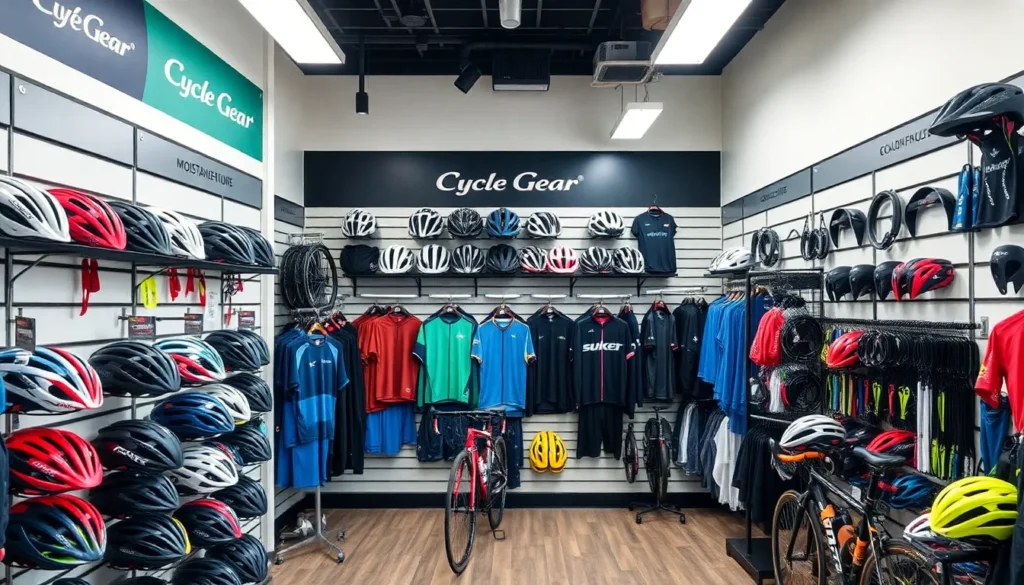When it comes to charging devices, the tech world can feel like a never-ending game of musical chairs. You’ve got your trusty iPhone and a Samsung charger lying around. But can these two rivals play nice? Spoiler alert: they just might!
Table of Contents
ToggleOverview Of Wireless Charging
Wireless charging uses electromagnetic fields to transfer energy between a charger and a device. It provides a convenient way to power smartphones without the need for physical connections. Qi, the most common standard for wireless charging, enables compatibility across various devices, including those from different manufacturers.
Many smartphones, like iPhones and Samsung models, support Qi wireless charging. With a Qi-compatible charger, users can charge their devices simply by placing them on the charging pad. This approach eliminates the hassle of tangled cords and connectors.
Charging speeds for wireless devices vary. While most chargers provide 5W to 10W, some models support fast charging up to 15W. It’s essential to check device specifications for optimal charging performance. Faster charging options typically deliver more power, benefiting users who require quicker energy replenishment.
Charging reliability is another critical aspect. Users should ensure proper alignment between the smartphone and charger for efficient power transfer. Misalignments might lead to slow charging or interruptions. Some chargers include features like built-in fans to regulate heat, enhancing safety during use.
Compatibility extends beyond brand names. While Samsung phones charge effortlessly on Samsung chargers, they also work well with iPhone models, provided the charger adheres to the Qi standard. This versatility allows users to mix and match devices without compatibility issues. Therefore, adopting wireless charging could simplify daily routines and enhance user experience across different smartphone brands.
Can Samsung Charge iPhone?
Samsung devices can indeed charge iPhones under certain conditions. When using a wireless charger, compatibility becomes seamless if both devices support the Qi charging standard.
Compatibility Between Devices
Compatibility between Samsung and iPhone devices primarily hinges on the Qi standard for wireless charging. Many Samsung smartphones, including the Galaxy series, work well on Qi-enabled chargers. Likewise, various iPhone models, starting from iPhone 8 and onward, are Qi-compatible. This means that users can place their Samsung phone on an iPhone charging pad without issues. Additional compatibility exists through USB-C to Lightning cables for wired charging, allowing some level of cross-brand functionality. Always verify the specific charger’s capabilities for optimal usage.
Charging Speed Comparisons
Charging speeds differ significantly based on the charger and device combination. Most wireless chargers deliver between 5W and 10W for standard charging, but certain fast chargers can reach up to 15W. Samsung’s wireless chargers often provide faster charging capabilities than standard options, enabling quicker power-ups for compatible Samsung devices. Moreover, iPhones on compatible chargers typically charge at a maximum rate of 7.5W wirelessly. For a quicker experience, users might consider wired charging options, which tend to provide faster power delivery compared to their wireless counterparts.
Using Samsung Chargers With iPhone
Using Samsung chargers with iPhones presents a practical solution for users with devices from different brands. Many iPhones since the 8 model support the Qi standard, which enables compatibility with a variety of wireless chargers, including those made by Samsung.
Required Adapters and Cables
Charging an iPhone using Samsung’s charging accessories often requires specific cables or adapters. A USB-C to Lightning cable allows for wired charging connections between Samsung chargers and iPhones. For wireless charging, any Qi-compatible charger from Samsung can effectively power an iPhone. Ensuring that the charger is rated for the appropriate power output maximizes charging efficiency and reduces potential disruptions.
Potential Risks and Precautions
Using Samsung chargers comes with some potential risks that users should consider. Overheating can occur if a charger is not adequately matched with device specifications. Proper alignment is crucial for wireless charging; misalignment leads to inefficiency and heat generation. Additionally, using low-quality third-party cables increases the risk of damage. Always assess the quality of cables and chargers to ensure safe operation and optimal performance, adhering to manufacturer guidelines wherever possible.
User Experiences And Reviews
Users often express satisfaction when charging their iPhones with Samsung chargers. Many report smooth transitions when using wireless charging pads that comply with the Qi standard. Experience indicates that models like the Galaxy series work seamlessly to power iPhones, particularly those starting from the iPhone 8.
Feedback reveals that charging speeds can vary significantly. Some users find that Samsung’s wireless chargers provide faster charging options compared to other brands, with many Samsung chargers capable of delivering 10W to 15W. When charging iPhones wirelessly, users expect a maximum of 7.5W but appreciate the convenience of simply placing their devices on the pad.
Positive reviews highlight the effectiveness of USB-C to Lightning cables for wired connections. Several users mention using these cables for quick charging, and they emphasize the importance of using quality adapters to avoid overheating and ensure safe operation. Complaints sometimes arise when users fail to properly align their devices on the charging pad, leading to inefficient charging.
Some individuals also share cautionary tales regarding mismatched chargers. Observing potential risks stands out; cases of overheating or slower charging speeds deter some from using non-certified chargers. Despite these concerns, many appreciate the versatility provided by charging options, noting that using Samsung chargers can simplify daily routines. Overall, experiences confirm that compatibility between Samsung chargers and iPhones is generally positive, making it a practical choice for users with mixed-brand devices.
The compatibility between Samsung chargers and iPhones offers users a convenient solution for charging their devices. With both brands supporting the Qi wireless charging standard, many iPhone models can easily recharge using Samsung’s wireless chargers. This flexibility enhances the user experience, particularly for those who own multiple devices from different manufacturers.
While users can enjoy the benefits of faster charging with Samsung’s technology, it’s essential to ensure proper alignment and use quality cables or adapters to avoid potential issues. Overall, the positive feedback from users highlights the practicality of using Samsung chargers with iPhones, making it a viable option for anyone looking to simplify their charging routine.









